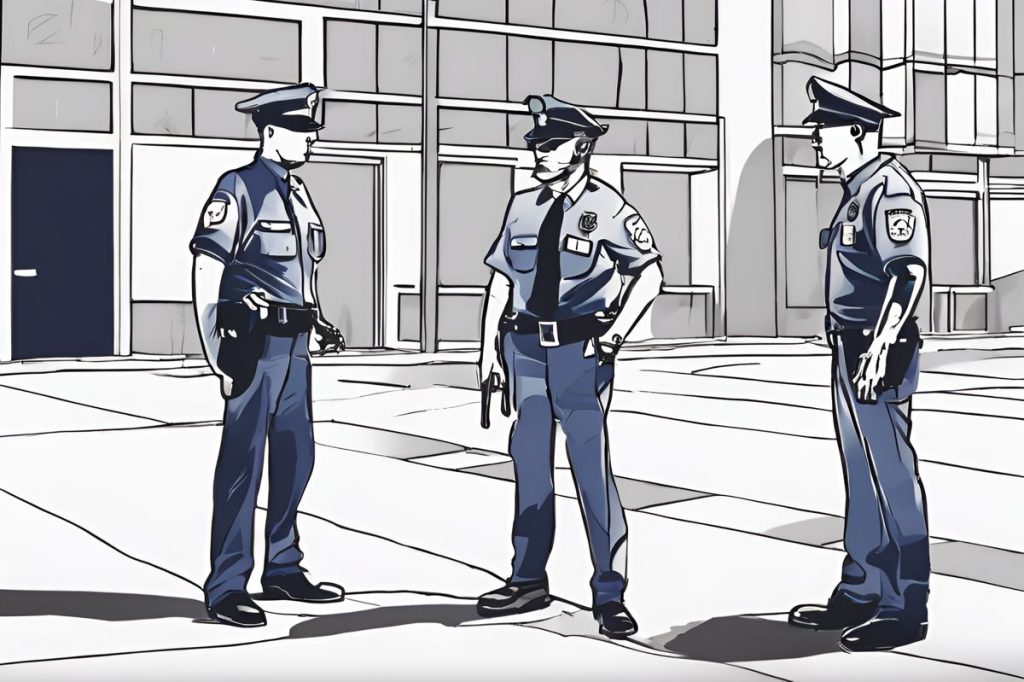The Police Union, represented by Isotita trade union, opposes unpaid overtime for law enforcement officers. They are preparing to take legal action to secure fair compensation for their members, arguing that extending working hours without additional pay violates labor rights and financial stability.
What is the Police Union’s position on unpaid overtime for law enforcement officers?
The Police Union, represented by Isotita trade union, is firmly against plans to extend police working hours without additional pay. They argue that this violates fundamental labor rights and disregards officers’ financial stability. The union is preparing for legal action to secure proper compensation for their members.
Law Enforcement Labor Dispute
The police branch of Isotita, a trade union, has recently vocalized a resolute intention to initiate legal proceedings. This announcement came as a response to plans that would extend the working hours of police staff in the upcoming months. The heart of the matter lies in a clash between the demands placed on law enforcement officers and the compensation—or lack thereof—offered for their additional labor.
Isotita’s bold stance emerged shortly after a declaration by the police, which outlined a two-month campaign targeting organized crime. This operation necessitates heightened nocturnal patrols island-wide. Unions, however, were keen to highlight an unsettling detail: despite the increase in hours, the remuneration for the officers’ extra effort would not be adjusted.
Appeal to Duty and Patriotism
A communiqué from police administration underscored the obligation officers have to serve and protect. It implored them to voluntarily extend their support, as required. Nevertheless, Isotita’s reaction was swift and pointed. They publicly censured the police chief for employing appeals to patriotism and the officers’ sense of duty as a means of justifying non-payment for overtime work spanning the next couple of months.
Moreover, the union criticized the decision-making process as unilateral and arbitrary, claiming it infringes upon the police officers’ fundamental labor rights. They condemned the lack of coordination, drive, and bravery to undertake the needed reforms, emphasizing that the approach taken was disorganized and negligent.
Impact on Police and Their Families
Discussions of unpaid overtime came with a sharp critique from Isotita, highlighting a discrepancy in expectations between the higher echelons and the rank-and-file of the police. There’s a growing sentiment that the financial well-being and the families of the officers are being disregarded by those in power, including the president, the minister of justice, and the chief of police.
The union’s announcement made it clear that they are prepared to fight for their members’ rightful compensation “up to the very last euro.” They argue that expectations of unpaid labor under the guise of patriotism should not be foisted upon those who sacrifice their safety daily to uphold law and order.
Legal Proceedings on the Horizon
The police union’s preparedness to take this battle to the courts signifies a crucial juncture in labor relations within the law enforcement sector. As the operatives continue to fulfill their duties with unwavering commitment, the union remains steadfast in its resolve to ensure their efforts are duly recognized and compensated.
In the unfolding discourse over fair labor practices, Isotita’s move to legally challenge the plans stands as a testament to the broader conversation about workers’ rights, equitable pay, and the value of public service. The legal actions they plan to undertake may set precedents for how labor disputes are resolved in the public sector, particularly in essential services like policing.
What is the Police Union’s stance on unpaid overtime for law enforcement officers?
The Police Union, represented by Isotita trade union, opposes unpaid overtime for law enforcement officers. They are preparing to take legal action to secure fair compensation for their members, arguing that extending working hours without additional pay violates labor rights and financial stability.
What prompted the Police Union to consider legal action regarding unpaid overtime?
The Police Union’s decision to pursue legal action was spurred by plans to extend police working hours without additional compensation. As the demands on law enforcement officers increase, the union believes it is essential to uphold fair labor practices and ensure officers’ financial stability.
How does Isotita view the appeals to duty and patriotism made by police administration in relation to unpaid overtime?
Isotita has criticized the appeals to duty and patriotism made by police administration as a means to justify non-payment for overtime work. They argue that such appeals overlook the fundamental labor rights of police officers and fail to recognize the sacrifices they make to uphold law and order.
What impact does Isotita believe unpaid overtime has on police officers and their families?
Isotita believes that the expectation of unpaid overtime has a significant impact on the financial well-being of police officers and their families. They argue that the disregard for fair compensation reflects a lack of consideration for those who put their safety on the line daily to serve their communities.

